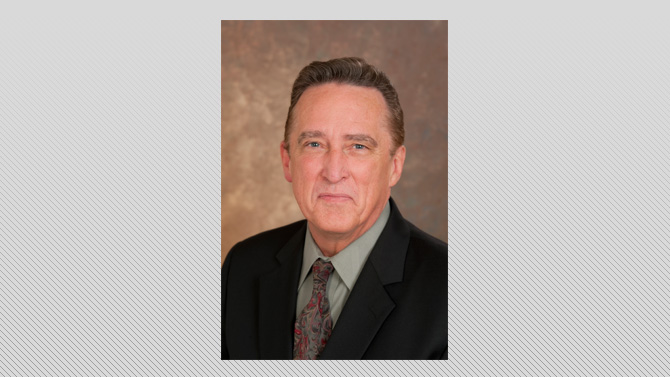


'Rethinking Environmentalism'
Photo by Evan Krape September 20, 2016
UD’s Byrne participates in international forum to ponder planet’s future
John Byrne, Distinguished Professor of Energy and Climate Policy at the University of Delaware, was one of 40 environmental thought leaders from around the world who gathered in Frankfurt, Germany, this summer to discuss the future of global environmentalism.
Titled “Rethinking Environmentalism: Justice, Sustainability and Diversity,” the gathering was hosted by the Ernst Strüngmann Forum, an organization dedicated to promoting interdisciplinary communication and research in the sciences. Through its innovative communication process, the forum provides a creative environment within which top international scientists discuss themes that transcend classic disciplinary boundaries.
Byrne, who directs the Center for Energy and Environmental Policy at UD, served on the steering committee and played an active role in planning the meeting over the preceding 18 months.
The event was conceived by Thomas Sikor, a specialist in resource rights at the School for International Development at the University of East Anglia, United Kingdom, and Sharachchandra Lele, a leading proponent of interdisciplinary studies of sustainability at the Ashoka Trust for Research in Ecology and the Environment in Bangalore, India.
Other participants included Robert Bullard of Texas Southern University, founder of the environmental justice research field; Georgina Mace of University College London, a leader in the field of conservation science investigating biodiversity loss; Esther Mwangi of the Centre for International Forestry Research, a pioneer in gender and environmental governance issues; and Joan Martinez Alier of Autonomous University of Barcelona, an economist and author of the widely cited book The Environmentalism of the Poor.
“The Ernst Strüngmann Forum is interested in promoting science dialogue,” Byrne explained. “People from around the world propose ideas for meetings, which are subsequently selected by the forum’s scientific advisory board. A steering committee is then convened, led by the forum’s executive director, Julia Lupp, to plan the event and select participants.”
Forum-sponsored events generally follow a process of discussion that is intense but energizing, according to Byrne. For “Rethinking Environmentalism,” 40 participants were divided into four discussion groups that focused on forests and other high-diversity ecosystems, urban environments, energy and climate change, and water.
Byrne led the energy and climate change group, which included participants from the U.S., Spain, Finland, Germany, China, South Africa and South Korea.
“We were supposed to come up with ‘roadmaps’ that would suggest how we — meaning the worldwide academic community — could improve environmental research going forward,” Byrne said. “Our aim in each of the four areas was to fully incorporate our three guiding principles of sustainability, justice and diversity, both cultural and biological.”
The forum sought to reconcile tensions that often occur between environmental researchers and activists on the one hand, and the governmental and business sectors on the other, regarding how to define and frame environmental problems and the underlying values and explanatory theories inherent in various frames.
To reach these goals, each working group put together its own discussion agenda, which was reviewed by the entire forum to ensure completeness. Thereafter, groups met in rotation to address key questions and identify gaps in knowledge.
Utilizing an iterative process, perspectives were voiced and evaluated, aided by external critique from visiting participants. Evenings were devoted to generating written overviews of discussed points for inclusion in the group's report after the full forum’s review, and each new day began with further feedback and questions to ponder. This pattern was repeated for a week, with participants challenging each other to refine and advance their ideas.
“At the outset, I wondered if people would be able to maintain their energy over a couple of days of these sessions, much less a whole week,” Byrne said. “But it didn’t turn out to be a problem at all! We kept at it, and we certainly didn’t lose our collective ability to critique each other’s thinking. We had a lot of interplay between scientists and policy people who pushed back on each other.”
Byrne said the sessions remained lively, and as the week progressed, the groups gradually began to switch from primarily asking questions to making recommendations to share with the international community of scholars.
The results of the forum are currently being fine-tuned for dissemination and will be published by the Ernst Strüngmann Forum in partnership with the MIT Press in 2017.
Contact Us
Have a UDaily story idea?
Contact us at ocm@udel.edu
Members of the press
Contact us at 302-831-NEWS or visit the Media Relations website

